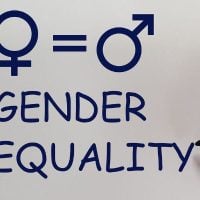Deadline: 10-Dec-21
The World Justice Project (WJP) is inviting entries for 2022 World Justice Challenge to Build More Just Communities that strengthen the foundational elements of the rule of law, support a just recovery from COVID-19, and tackle the root causes of societies’ persistent inability to deliver a dignified life for all.
The World Justice Challenge 2022 is a global competition to identify, recognize and promote good practices and high-impact projects and policies that protect and advance the rule of law.
Themes
- Access to Justice: The World Justice Challenge 2022: Building More Just Communities seeks to identify, recognize, and promote good access to justice practices and high-impact projects and policies that help ensure the path of recovery from COVID-19 is just and that progress toward achieving the SDGs gets back on track.
- Anti-Corruption and Open Government: The World Justice Challenge 2022: Building More Just Communities seeks to identify, recognize, and promote good anti-corruption and open government practices and high-impact projects and policies that help ensure the path of recovery from COVID-19 is just and that progress toward achieving the SDGs gets back on track.
- Equal Rights and Non-Discrimination: The World Justice Challenge 2022: Building More Just Communities seeks to identify, recognize, and promote good equal rights and non-discrimination practices and high-impact projects and policies that help ensure the path of recovery from COVID-19 is just and that progress toward achieving the SDGs gets back on track.
Award Information
- Cash awards ($20,000 USD) will go to five initiatives that show demonstrable results and promising prospects for future progress and replication/scaling.
- The five winning initiatives will be selected in the following manner:
- Four winners will be chosen by a committee of experienced judges under the following three Challenge themes (one winner per theme), plus one special prize:
- Access to Justice
- Anti-Corruption and Open Government
- Equal Rights and Non-Discrimination
- The Data for Justice Prize for the project that demonstrates the most innovative use of data and evidence to advance one or more of the themes
- Four winners will be chosen by a committee of experienced judges under the following three Challenge themes (one winner per theme), plus one special prize:
- A fifth winner will be selected by a network of finalists from previous World Justice Challenge competition
Guidelines
- Access to Justice: The World Justice Challenge encourages entries that address systemic access to justice challenges, including, but not limited to:
- Protecting those working in the informal economy and facilitating their entry into formal employment and benefits structures
- Ensuring legal identity for all
- Addressing issues of land tenure and housing rights, including substandard housing, informal settlements, homelessness, dispossession, and land grabs that target indigenous lands
- Addressing the justice needs of migrants, refugees, and other forcibly displaced persons
- Addressing the justice needs of crime victims and detainees
- Addressing the strained capacity of justice systems to meet demands, particularly around healthcare, gender-based violence, housing, employment, and debt issues exacerbated by the pandemic
- Strengthening the capacity of formal or informal justice systems to deliver timely access to justice services and legal resolutions
- Facilitating the rebuilding of justice systems disrupted by the pandemic, including through the use of digital, online, and new technological approaches that are equitable and accessible by most people
- Supporting new approaches to ensure the right to a fair and speedy trial, strengthening access to counsel, and improving the openness of trials and other hearings
- Anti-Corruption and Open Government: The World Justice Challenge encourages entries that address systemic corruption and open government challenges, including, but not limited to:
- Vetting suppliers, tracking financial flows, disclosing beneficial ownership, and supporting public complaint or whistleblower mechanisms
- Ensuring the open publication of public contracts
- Ensuring openness of government distribution of economic recovery and social support programs
- Strengthening mechanisms that provide oversight and accountability for elected and appointed officials, including judges
- Protecting the right to information and the proactive publication of government data
- Strengthening the ability of independent media to track and report on corrupt practices
- Supporting citizen participation in public decision making at the local and national levels
- Ensuring fiscal openness, including budget and expenditure data transparency and oversight mechanisms
- Ensuring accountability of public works, expenditures and infrastructures
- Using innovative techniques for identifying, investigating and documenting corruption, including through the use of data analytics
- Equal Rights and Non-Discrimination: The World Justice Challenge encourages entries that address systemic barriers to equal rights and non-discrimination, including, but not limited to:
- Addressing systemic discrimination and unequal treatment of women and girls, racial, ethnic and religious minorities, LGBTI+ communities, people with disabilities, migrants, indigenous communities, and other marginalized groups
- Ensuring women and girls, racial, ethnic and religious minorities, LGBTI+ communities, people with disabilities, migrants, indigenous communities, and other marginalized groups are included in both short- and long-term economic and social recovery plans
- Addressing gender-based violence
- Tackling the discriminatory impacts of climate and other environmental problems
- Protecting journalists and other media workers, especially those from historically disadvantaged communities
- Protecting human rights defenders and the lawyers who represent them, especially from historically disadvantaged communities
- Protecting the right to peaceful assembly and/or association free of discrimination and unwarranted interference
- Protecting the right to privacy in accordance with norms of legality, necessity, proportionality, and non-discrimination
- Ensuring digital technology is created and deployed in ways that reduce or eliminate inherent biases and discrimination
- Challenging discriminatory practices and policies relating to arrest, detention, prosecution, probation, or exile
- Strengthening the implementation and/or enforcement of hate crimes legislation
Eligibility Criteria
- Initiatives addressing at least one of the following Challenge themes, as they relate to addressing structural inequities and fundamental barriers on the path to a just COVID-19 recovery, are eligible to apply:
- Access to Justice
- Anti-Corruption and Open Government
- Equal Rights and Non-Discrimination
- The competition is multidisciplinary and open to organizations worldwide, including, but not limited to: non-profits; social entrepreneurs; media; national and multilateral government agencies; local government bodies; businesses/private sector enterprises; bar associations; and law firms from any country or territory in the world.
- Applicants may submit no more than two entries.
- Collaborative entries among several organizations are welcome.
- Entries must be submitted in English.
- Entries will be evaluated according to the following criteria:
- Impact: the initiative has demonstrably made a material contribution to improving an important justice problem in one or more the thematic categories
- Sustainability: the initiative demonstrates the potential for sustained operation over time
- Scaling/Replicability: the initiative demonstrates potential for expansion in its current context and/or replication in other contexts (e.g. other geographies, populations or sectors)
For more information, visit https://worldjusticeproject.org/world-justice-challenge-2022









































